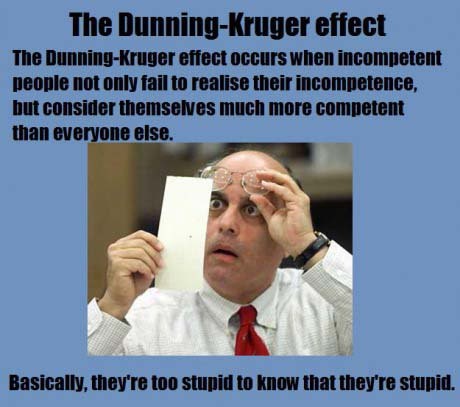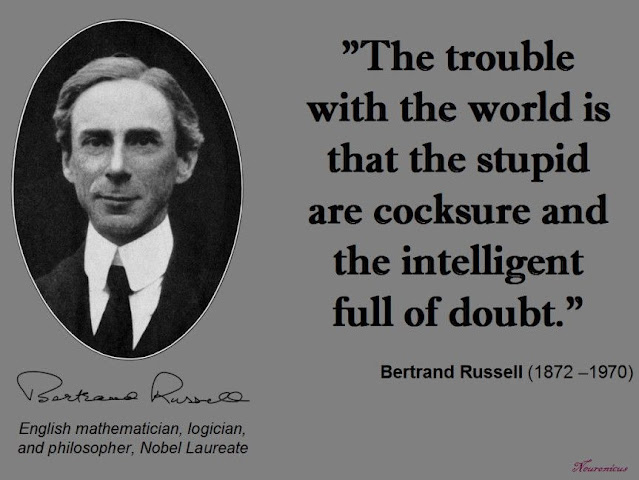“True wisdom comes to each of us when we realise
how little we understand about life,
ourselves, and the world around us.”
-Socrates.
The Dunning-Kruger effect is the name of a concept whereby people wrongly overestimate their knowledge or ability in a specific area.
This tends to occur because a lack of self-awareness prevents them from accurately assessing their own skills.
The concept of the Dunning-Kruger effect is based on a 1999 paper by Cornell University psychologists David Dunning and Justin Kruger.
The pair tested participants on their logic, grammar, and sense of humour, and found that those who performed in the bottom quartile rated their skills far above average. For example, those in the 12th percentile self-rated their expertise to be, on average, in the 62nd percentile.
According to Dunning and Kruger:
Those with limited knowledge in a domain suffer a dual burden: Not only do they reach mistaken conclusions and make regrettable errors, but their incompetence robs them of the ability to realize it.
How do you fix the Dunning-Kruger effect?
- Question what you know and pay attention to those who have different viewpoints.
- Seek feedback from people you can trust who you know are highly skilled in your area of interest.
- Be open to constructive criticism and resist the impulse to become defensive.
- Don’t pretend to know something you don’t.
- Make it a priority to continue learning and growing.









No comments:
Post a Comment
Note: Only a member of this blog may post a comment.